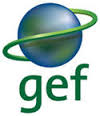Community / Land projects / Integrated Landscape Management Gambia (INLAMAG) Project
Integrated Landscape Management Gambia (INLAMAG) Project

€4662885.72
07/22 - 07/22
Achevé
This project is part of
Implementing Organisations
Donors
Data Providers
Objectives
To create an enabling environment for an integrated landscape approach in support of SLM and LDN implementation in The Gambia
Other
Note: Disbursement data provided is cumulative and covers disbursement made by the project Agency.
Target Groups
1. The objective of the project is to create an enabling environment for an integrated landscape approach in support of SLM and LDN implementation in The Gambia, and directly benefit 9,608 people (5,715 (59%) women; and 3,893 (41%) men. Generally, land degradation threatens the livelihoods of billions of people around the world, particularly the rural populations, 80% of whom live extreme poverty, and 65% among them work in the agricultural sector.[1] For rural communities, land is a key asset for the livelihoods, as it provides key resources such as food, energy, shelter, and fodder, among others. Land degradation, however, constrains the supply of these ecosystem services and negatively impacts household income and consumption in many parts of the world, worsening poverty and widening inequalities.[2] Thus, land degradation negatively impacts on human wellbeing as it leads to a decrease in food availability, energy provision, groundwater recharge, soil fertility, carbon sequestration capacity, biodiversity and construction materials, among others.[3] Physical declines in ecosystem services have a direct impact on the capacity of households to generate income due to reductions in labour, livestock and land productivity, as well as on the capacity of households to harvest products from nature for their own livelihoods. 2. This project will invest in SLM and LDN to improve the productivity of production landscapes in targeted regions in The Gambia. The project acknowledges that land improvements support rural populations to generate income, contributing to the prosperity and equality of those at the bottom of the income distribution ladder through mechanisms such as sustaining the income of households largely dependent on land for their subsistence, increasing labour, livestock and land productivity and enabling resources for economic growth in the agricultural sector.[4] 3. The project recognises the relationship between poverty and environmental degradation. As has already been noted, The Gambia’s poverty rate remains at 48%, while food insecurity has risen from 5 to 8% over the past five years as a result of weak food production systems and the effects of successive shocks such as drought and floods. Due to COVID-19, poverty expected to increase by 9.6% percent in 2020.[5] Poverty rates remain highest in rural areas, where the poor typically work in the low-productivity agricultural sector, while in urban areas they work in the lowproductivity informal service sectors. In addressing the challenges of land degradation, the projects also seeks to address the poverty levels which remain stubbornly in rural Gambia. 4. The socioeconomic benefits for direct beneficiaires are trifurcated into capacity development, access to improved resource base, and direct handouts in form of equipment that will support them to reduce their exploitation of natural resources. The benefits include the following:· The project seeks to build the capacity of stakeholders through vocational education strategies and trainings tools that will benefit 4,200 people. Capacity development will also include the Songhai Centre and Farmers Field Schools. Additionally, the capacity of 7 communities; 50 women associations and technical services; and 150 extension services workers in 11 districts will be enhanced on SLM for climate resilient and low emission agriculture leading to improved agricultural and livestock production. The socioeconomic benefit in capacity development lies in the adage that knowledge is power. The project, through capacity development, will therefore empower beneficiaries.· The project will support 700 households to improve water and soil management practices that will have overall benefits in terms of food and nutrition security on 1,500 ha. Additionally, the productivity of more land (12,000 ha) will be improved, and bushfires controlled on 7,500 ha – further contributing to the provisions of ecosystem services that underpin livelihoods. Furthermore, the creation of woodlots using multipurpose tree species will be crucial in the provisioning of traditional medicines and fuelwood which they would otherwise have to fetch far away;· The project will distribute 1,000 Jambar cooking stoves distributed to 1,000 households to reduce the use of charcoal and fuelwoods which contribute to soil erosion and general land degradation. Jambar cooking stoves as improved biomass cooking stoves, as the name suggests, improves the consumption of firewood, and therefore, saves on the collection time of fuelwood. 5. It is reiterated here that, for rural communities that are financially constrained, the balanace between land management and poverty is delicate because the wellbeing of resource users is not only a function of the productivity of those resources, but the socioeconomic wellbeing also depends those resources. Thus, avoiding and reducing the negative impacts on land, as well as restoring land resources, will be crucial to conserve and protect biodiversity and maintain vital ecosystem services, while also ensuring shared prosperity and well-being. Generally, healthy and productive land plays an important role as an engine of economic growth and a source of livelihoods for billions worldwide, including the most vulnerable populations.[6] [1] Global Mechanism of the UNCCD, Conservation International, DIE. 2019. Land Degradation, Poverty and Inequality. Bonn, Germany [2] Idem [3] IPBES (2018): The IPBES assessment report on land degradation and restoration. Montanarella, L., Scholes, R., and Brainich, A. (eds.). Secretariat of the Intergovernmental Science-Policy Platform on Biodiversity and Ecosystem Services, Bonn, Germany [4] Global Mechanism of the UNCCD, Conservation International, DIE. 2019. Land Degradation, Poverty and Inequality. Bonn, Germany [5] World Bank. (2020). Poverty and Equity Brief: Africa Western & Central - The Gambia [6] UNCCD. (2019). Land and Sustainable Development Goals



